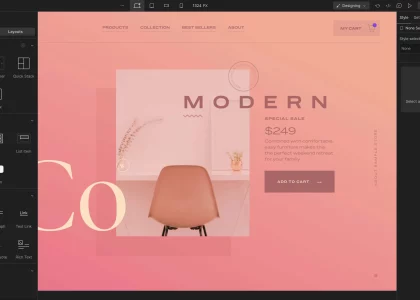In the ever-evolving landscape of web design, the question of whether web designers should learn to code is one that sparks spirited debate and varied opinions. On one hand, mastering coding languages such as HTML, CSS, and JavaScript can offer designers greater control over their creations and open up new avenues for creativity. On the other hand, some argue that specialized tools and platforms have made coding skills less essential for modern web designers. In this article, we delve into the pros and cons of learning to code for web designers, exploring the nuances of this ongoing discussion.
The Case for Learning to Code:
1. Enhanced Creative Control:
One of the most compelling arguments in favor of learning to code is the level of creative control it affords designers. By understanding the underlying structure and functionality of websites, designers can tailor their designs more precisely to their vision, without being constrained by the limitations of pre-built templates or themes. This deeper understanding allows for greater customization and innovation, resulting in more unique and impactful web experiences.
2. Improved Collaboration with Developers:
In today’s collaborative work environments, effective communication between designers and developers is essential for project success. By learning to code, web designers can bridge the gap between design and development, speaking the same language as their colleagues and fostering smoother collaboration. This shared understanding facilitates more seamless workflows, reduces misunderstandings, and leads to more cohesive end products.
3. Versatility and Adaptability:
In a rapidly evolving industry, versatility is a valuable asset for web designers. By acquiring coding skills, designers can adapt to changes in technology, trends, and client needs more effectively. Whether it’s mastering new frameworks, experimenting with emerging design techniques, or troubleshooting technical issues, coding proficiency empowers designers to stay ahead of the curve and remain relevant in an ever-changing landscape.
4. Greater Career Opportunities:
In an increasingly competitive job market, coding skills can set web designers apart from their peers and open up new career opportunities. Many employers value candidates who possess a combination of design and development skills, as it enables them to take on a wider range of responsibilities and contribute to projects more comprehensively. With coding proficiency on their resume, designers may find themselves better positioned for roles that require both creative and technical expertise.
The Case Against Learning to Code:
1. Specialization vs. Generalization:
In the past, web designers were expected to wear multiple hats, combining design, development, and other skills to create functional websites. However, as the industry has matured, specialization has become more common, with designers focusing on specific areas of expertise. Some argue that while coding skills are valuable, they may not be necessary for all designers, especially those who prefer to specialize in aspects such as user experience (UX) or visual design.
2. Time and Resources:
Learning to code is a significant investment of time and resources, requiring dedication, practice, and ongoing learning. For designers who are already juggling multiple projects and deadlines, adding coding to their skill set may not be feasible or practical. In such cases, designers may opt to leverage specialized tools and platforms that streamline the design process, allowing them to focus on their strengths without sacrificing quality or efficiency.
3. Evolving Tools and Technologies:
The landscape of web design is constantly evolving, with new tools, technologies, and frameworks emerging at a rapid pace. While coding skills are valuable, they can also become outdated quickly, requiring designers to continuously update their knowledge and adapt to changes. Some argue that specialized design tools and platforms offer a more efficient and future-proof solution, allowing designers to focus on creating exceptional user experiences without getting bogged down in technical details.
4. Collaboration with Developers:
While learning to code can facilitate collaboration between designers and developers, it’s important to recognize that not all designers aspire to become developers. Collaboration is a two-way street, and developers also play a crucial role in bringing designs to life. By fostering mutual respect, open communication, and a shared understanding of each other’s roles and expertise, designers and developers can collaborate effectively without necessarily possessing the same skill set.
In the end, the question of whether web designers should learn to code is not a one-size-fits-all proposition. It ultimately depends on the individual designer’s goals, preferences, and career aspirations. For some, coding skills may be essential for achieving their creative vision and advancing their career. For others, specialization in design-focused areas may offer a more fulfilling and sustainable path. Regardless of the decision, what remains paramount is a commitment to continuous learning, collaboration, and delivering exceptional experiences for users in the digital realm. By embracing the dynamic nature of web design and staying true to their passions and strengths, designers can navigate this complex landscape with confidence and creativity.






